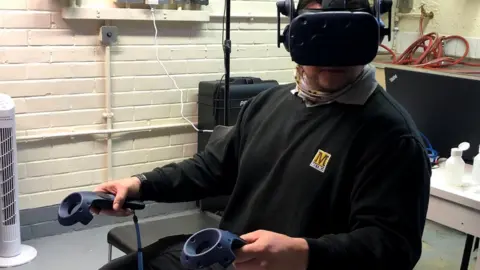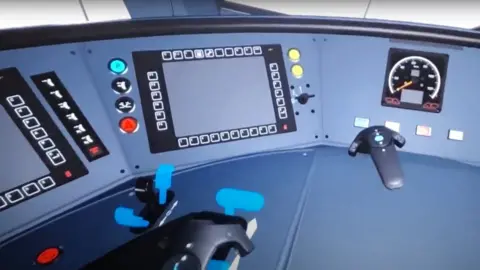Tyne and Wear Metro drivers use virtual reality to test trains
 Nexus
NexusVirtual reality is being used by Tyne and Wear Metro drivers to test a new fleet of trains in a Covid-secure way.
The computer-generated images give drivers a virtual tour of the controls and layout of the cabs so they can provide feedback before they are built.
Metro operator Nexus said the headsets were a "vital tool" to get train crews ready for the new £362m fleet.
Development director Neil Blagburn said VR "helps ensure" they deliver the "best possible layout" for the drivers.
 Nexus
NexusNexus said as many of their 155 drivers as possible would use the technology over a nine-week consultation period.
The headsets have been provided by Swiss manufacturer Stadler, which is building 46 new Metro trains to enter operation in 2023.
Project manager Adrian Wetter said feedback will be used to "to iron out any issues" before the production line rolls in 2021.
He added: "The kit enables drivers to get a feel for the new trains from the very early stages of the project, and means that they can prepare for them well in advance.
"This ultimately saves time and resources."

Follow BBC North East & Cumbria on Twitter, Facebook and Instagram. Send your story ideas to [email protected].
